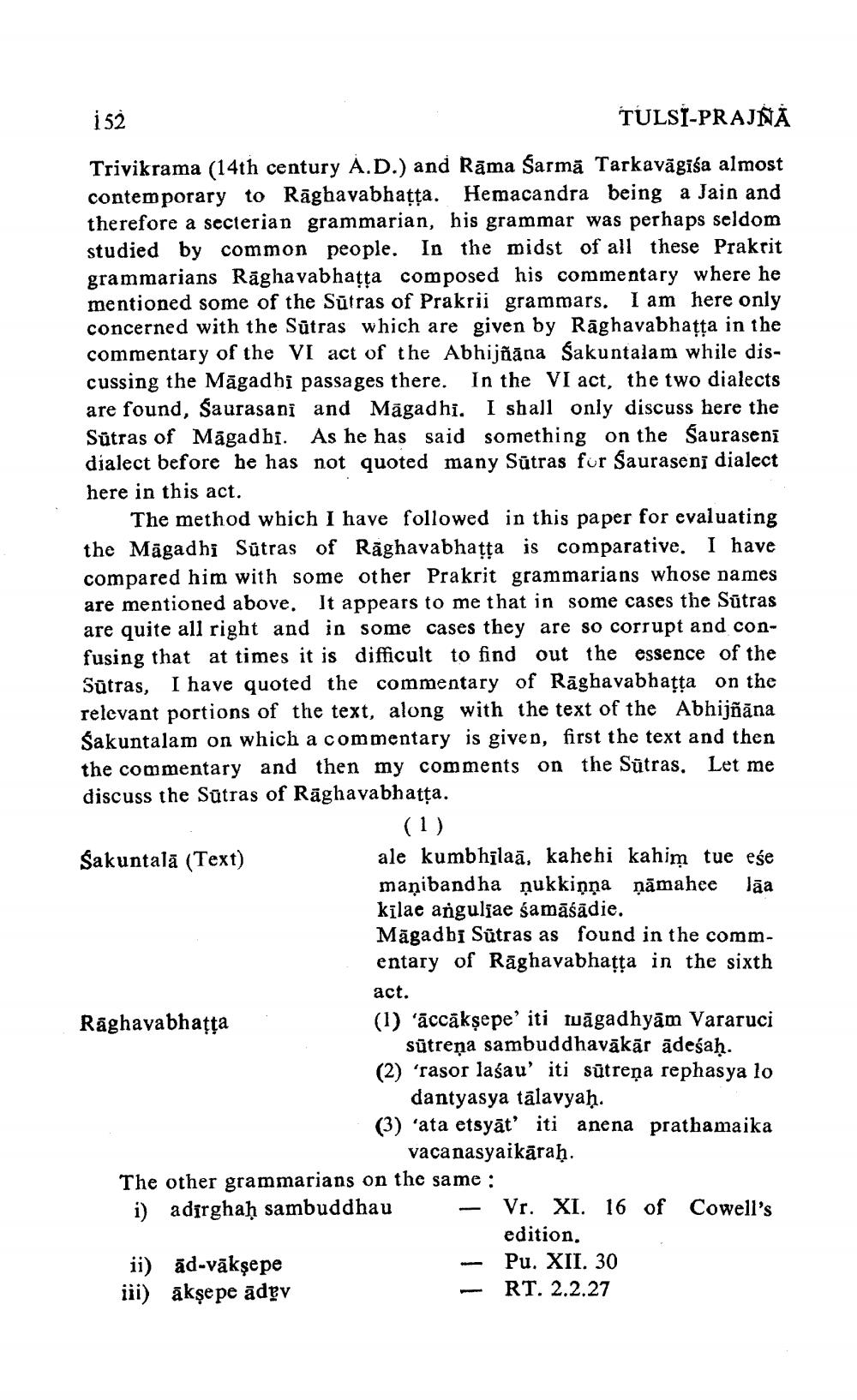________________
152
TULSI-PRAJŠA
Trivikrama (14th century A.D.) and Rāma Śarmā Tarkavāgiša almost contemporary to Rāghavabhatta. Hemacandra being a Jain and therefore a secterian grammarian, his grammar was perhaps seldom studied by common people. In the midst of all these Prakrit grammarians Rāghavabhatta composed his commentary where he mentioned some of the Sūtras of Prakrii grammars, I am here only concerned with the Sūtras which are given by Rāghavabhatta in the commentary of the VI act of the Abhijñāna Sakuntalam while discussing the Māgadhi passages there. In the VI act, the two dialects are found, Saurasani and Māgadhi. I shall only discuss here the Sūtras of Māgadbi. As he has said something on the Sauraseni dialect before he has not quoted many Sūtras für Saurasenj dialect here in this act.
The method which I have followed in this paper for evaluating the Māgadhi Sutras of Raghavabhatta is comparative. I have compared him with some other Prakrit grammarians whose names are mentioned above. It appears to me that in some cases the Sūtras are quite all right and in some cases they are so corrupt and confusing that at times it is difficult to find out the essence of the Sūtras, I have quoted the commentary of Rāghavabhațţa on the relevant portions of the text, along with the text of the Abhijñāna Śakuntalam on which a commentary is given, first the text and then the commentary and then my comments on the Sütras. Let me discuss the Sūtras of Rāghavabhatta.
Sakuntalā (Text)
ale kumbhilaā, kahehi kahim tue ese maņibandha ņukkiņņa ņāmahee la kilae anguljae samāśādie. Māgadbi Sūtras as found in the commentary of Rāghavabhațța in the sixth
act. Raghavabhațţa
(1) 'accāksepe' iti fuāgadhyām Vararuci
sütrena sambuddhaväkār ādesah. (2) 'rasor laśau' iti sūtrena rephasya lo
dantyasya tālavyah. (3) 'ata etsyāt' iti anena prathamaika
vacanasyaikāraḥ. The other grammarians on the same : i) adirghaḥ sambuddhau - Vr. XI. 16 of Cowell's
edition. ii) ād-vākṣepe
Pu. XII. 30 iii) ākṣepe ādev
RT. 2.2.27




